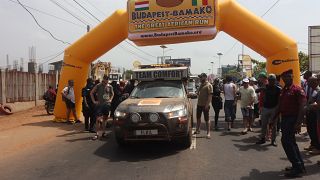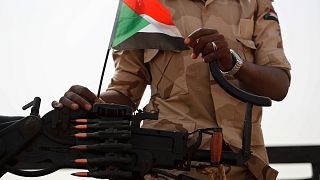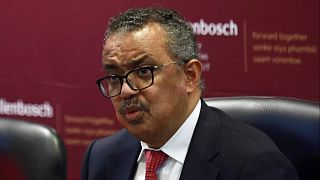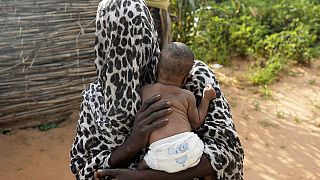Sudan
As the war in Sudan continues women and girls have been learning new skills at a combat training camp set up in a former school yard.
The 10 months of clashes between the Sudanese military, led by Gen. Abdel Fattah Burhan, and the Rapid Support Forces, a powerful paramilitary group commanded by Gen. Mohammed Hamdan Dagalo, has decimated vast swaths of the northeastern Africa country.
The conflict erupted last April in the capital, Khartoum, and quickly spread to other areas of the country, after months of simmering tensions between the two forces.
At the training camp in Port Sudan, one of many set up across the country after the Sudanese army called on civilian to take up arms, military officers have been teaching women drills and how to use weapons such as AK-47 assault rifles.
Some women told British broadcaster Sky News they were attending the camp to show solidarity with their family members who had been conscripted to fight for the Sudanese military.
Others said they were learning new skills to defend themselves and their families.
At a military hospital a teenager was receiving treatment after he was hit in the spine by a bullet which went through his shoulder, Sky News reported.
The 18-year-old could only move his face and told Sky he had signed up to fight because he needed the money due to tough living conditions.
He was being cared for by another new recruit, a 20-year-old university student.
"We never had anything to do with the military, it wasn't even on our minds," he said.
The United Nations says at least 12,000 people have been killed in the conflict, although local doctors groups say the true toll is far higher.
More than 9 million people are thought to be internally displaced in Sudan, and 1.5 million refugees have fled into neighbouring countries as the conflict continues.
The U.N. food agency earlier this month warned it had received reports of people dying from starvation.
According to Michael Dunford, Regional Director for Eastern Africa at the World Food Programme, the war had caused Sudan to be the "biggest humanitarian crisis we have today" and he urged the international community for greater support.
Dagalo’s paramilitary forces appear to have had the upper hand over the past three months, with their fighters advancing to the east and north across Sudan’s central belt.
Both sides have been accused of war crimes by rights groups.
Regional partners in Africa have been trying to mediate an end to the conflict, along with Saudi Arabia and the United States, which facilitated several rounds of unsuccessful, indirect talks between the warring parties.
Burhan and Dagalo are yet to meet in person since the conflict began












01:05
Ethiopia's mega-dam on the Nile is "now complete", Prime Minister says
01:30
Nigerian singer Tems launches Leading Vibe Initiative to support women in music
02:20
In Morocco, women keep the art of traditional rug-weaving alive
01:49
Sudanese refugees in Chad face deepening humanitarian crisis
01:11
Sudan: U.S. sanctions over alleged chemical weapons use come into force
01:47
'Minerals': Researcher explains U.S. interest in DRC-Rwanda truce